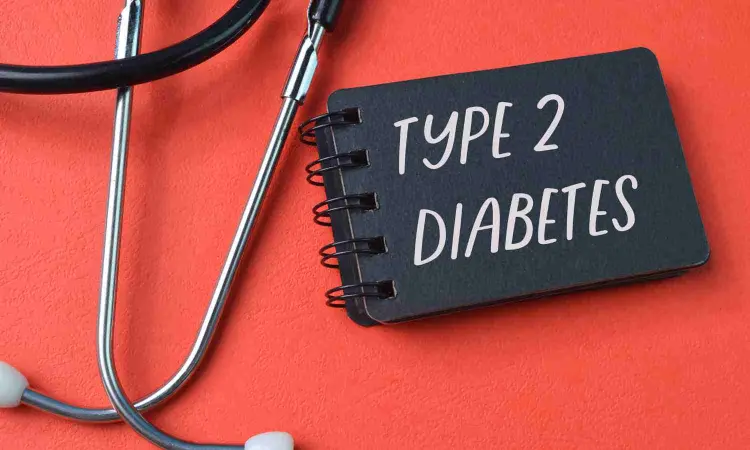- Home
- Medical news & Guidelines
- Anesthesiology
- Cardiology and CTVS
- Critical Care
- Dentistry
- Dermatology
- Diabetes and Endocrinology
- ENT
- Gastroenterology
- Medicine
- Nephrology
- Neurology
- Obstretics-Gynaecology
- Oncology
- Ophthalmology
- Orthopaedics
- Pediatrics-Neonatology
- Psychiatry
- Pulmonology
- Radiology
- Surgery
- Urology
- Laboratory Medicine
- Diet
- Nursing
- Paramedical
- Physiotherapy
- Health news
- Fact Check
- Bone Health Fact Check
- Brain Health Fact Check
- Cancer Related Fact Check
- Child Care Fact Check
- Dental and oral health fact check
- Diabetes and metabolic health fact check
- Diet and Nutrition Fact Check
- Eye and ENT Care Fact Check
- Fitness fact check
- Gut health fact check
- Heart health fact check
- Kidney health fact check
- Medical education fact check
- Men's health fact check
- Respiratory fact check
- Skin and hair care fact check
- Vaccine and Immunization fact check
- Women's health fact check
- AYUSH
- State News
- Andaman and Nicobar Islands
- Andhra Pradesh
- Arunachal Pradesh
- Assam
- Bihar
- Chandigarh
- Chattisgarh
- Dadra and Nagar Haveli
- Daman and Diu
- Delhi
- Goa
- Gujarat
- Haryana
- Himachal Pradesh
- Jammu & Kashmir
- Jharkhand
- Karnataka
- Kerala
- Ladakh
- Lakshadweep
- Madhya Pradesh
- Maharashtra
- Manipur
- Meghalaya
- Mizoram
- Nagaland
- Odisha
- Puducherry
- Punjab
- Rajasthan
- Sikkim
- Tamil Nadu
- Telangana
- Tripura
- Uttar Pradesh
- Uttrakhand
- West Bengal
- Medical Education
- Industry
Gargling away bad bacteria with antiseptic mouthwash may improve blood sugar in diabetes patients: Study

Researchers from Osaka University have found in a new study that Gargling away bad bacteria with antiseptic mouthwash may improve blood sugar in diabetes patients.
More than bad breath, there is growing evidence that ongoing inflammation in the mouth, like with gum disease, is associated with serious diseases such as Alzheimer’s disease or type 2 diabetes.
In a study published this month in Scientific Reports, the researchers reported that when people with type 2 diabetes gargled with an antiseptic mouthwash, the numbers of periodontitis-related bacteria decreased. Excitingly, some patients with reduced bacteria also achieved much better control of their blood sugar, hinting at promising future clinical applications.
“There are three highly virulent bacterial species that are linked to periodontitis, or diseases of the tissues surrounding the teeth,” explains lead author of the study Saaya Matayoshi. “We decided to see if we could reduce these three species-Porphyromonas gingivalis, Treponema denticola, and Tannerella forsythia-in patients with type 2 diabetes using a mouthwash containing the antiseptic chlorhexidine gluconate.”
To do this, the researchers took monthly or bimonthly saliva and blood samples from 173 patients over an entire year. With the saliva, the researchers noted the presence or absence of the three bacterial species, and with the blood samples, they measured HbA1c levels as a marker of blood-sugar control. Importantly, for the first 6 months of the study, the patients gargled with water, whereas for the second 6 months they gargled with the antiseptic mouthwash. In this way, the research team could see whether gargling itself was effective for reducing bacteria, or whether mouthwash was more effective.
“We were unsurprised to see that gargling with water had no effects on bacterial species or HbA1c levels,” explains Kazuhiko Nakano, senior author of the study. “However, there was an overall reduction in bacterial species when the patients switched to mouthwash, as long as they were gargling at least twice a day.”
The researchers also found that, although there were no overall changes in HbA1c levels when patients gargled with the antiseptic mouthwash, there appeared to be large variations in individual responses. For example, when they split the group into younger and older patients, younger patients had greater reductions in bacterial species and significantly better blood-sugar control with the mouthwash compared with water.
Given that poor oral health is linked to serious disease, simple methods to improve oral hygiene have important ramifications. If researchers can identify patients who are likely to respond well to antiseptic mouthwash, this easy-to-use treatment may improve the lives of people with periodontitis-linked diseases such as diabetes, dementia, cardiovascular disease, and respiratory tract infections.
Reference:
Matayoshi, S., Tojo, F., Suehiro, Y. et al. Effects of mouthwash on periodontal pathogens and glycemic control in patients with type 2 diabetes mellitus. Sci Rep 14, 2777 (2024). https://doi.org/10.1038/s41598-024-53213-x.
Dr Kamal Kant Kohli-MBBS, DTCD- a chest specialist with more than 30 years of practice and a flair for writing clinical articles, Dr Kamal Kant Kohli joined Medical Dialogues as a Chief Editor of Medical News. Besides writing articles, as an editor, he proofreads and verifies all the medical content published on Medical Dialogues including those coming from journals, studies,medical conferences,guidelines etc. Email: drkohli@medicaldialogues.in. Contact no. 011-43720751


